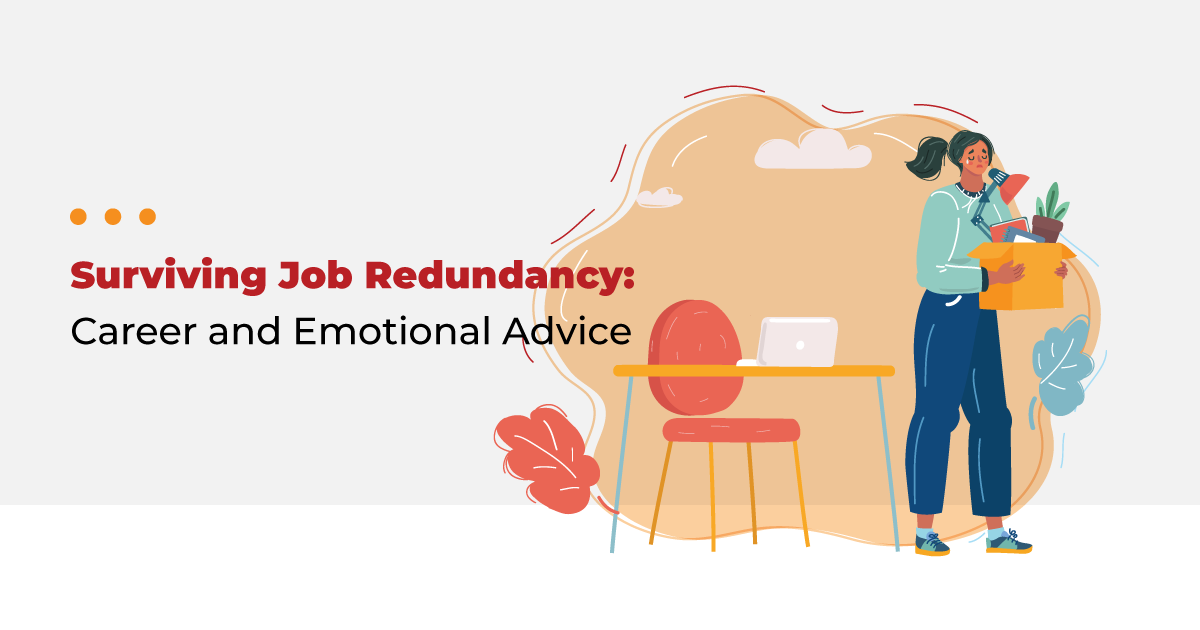Redundancy in the workplace refers to when an employer decides to let go of staff because the roles they hold are no longer needed due to a reshuffle of company focus or downsizing. Redundancy only applies to a role that completely disappears in a company. If someone else is brought in to take the place of the laid-off employee, that is not redundancy.
Redundancy at work might catch you when you least expect and upset your life and plans. The important thing to always remember is that redundancy doesn’t necessarily reflect on your professional value, just the lack of value to that particular company. Additionally, you will discover that it is easy to get back on your feet.
That being said, it is not uncommon to experience negative feelings like discouragement, disillusionment and a sense of being malicious targeted. Even though losing your source of income abruptly can be upsetting, it is important that you get over the negative feelings fast and begin focusing on your next career move. Here are tips to help you get through the shock and transition fast into competitive job search efforts, and how to stay afloat and focus your energy on positive steps;
Table of Contents
1. Vent in a Measured way
It is tempting to keep talking about your bad luck once you get laid off. You can talk about it with your family and friends. However, you need to measure how much venting you do, because you might inadvertently drag them into your misery. Talk about it once or twice then park it.
It might be tempting to also get together with former colleagues who you were made redundant with. Avoid such gatherings unless you will be discussing job or business ideas as well as self-improvement projects.
2. Get Into Immediate Action Mode

After mourning the lost opportunity, it is time to move on. Your career is not defined by one closed door. Plus the redundancy was an issue of the company not needing the role.
It had nothing to do with your value and skills.
Get into immediate action. Update your CV and begin scouring job boards for jobs that fit your profile. Involve your family, friends and professional networks in your job search. They might come in really handy in connecting you with your next employer.
3. Re-Package Yourself

Take an objective look at your current professional profile. You might have been securely working for a while without keeping up with the trends in your industry. This is the time to get updated on what you might have missed in order to be relevant for the next employer. Upskill, if you have to, and match your skills to as many roles as possible. It increases your chances of getting your next job. Make a list of all your skills, attributes, education and training. See yourself as a skill set rather than a particular job role.
4. Keep an Open Mind
At this stage in your career, a fixed mindset would do more harm than good. Be flexible to take on opportunities that present themselves. They might be doors to your dream job or your dream job in disguise.
5. Keep Your Finances in Order

A redundancy situation can upset your financial plans. Once it happens, you might want to cut back on unnecessary expenses and communicate with your debtors about your situation.
Bonus Tip
When attending interviews and you’re asked why you are leaving your current employer, there is no shame or harm in saying that you were made redundant. Say it graciously and reiterate on the value of your skill set to the company you are interviewing with. Avoid as much as possible being emotional or portraying signals that show your grudge with your previous employer.





